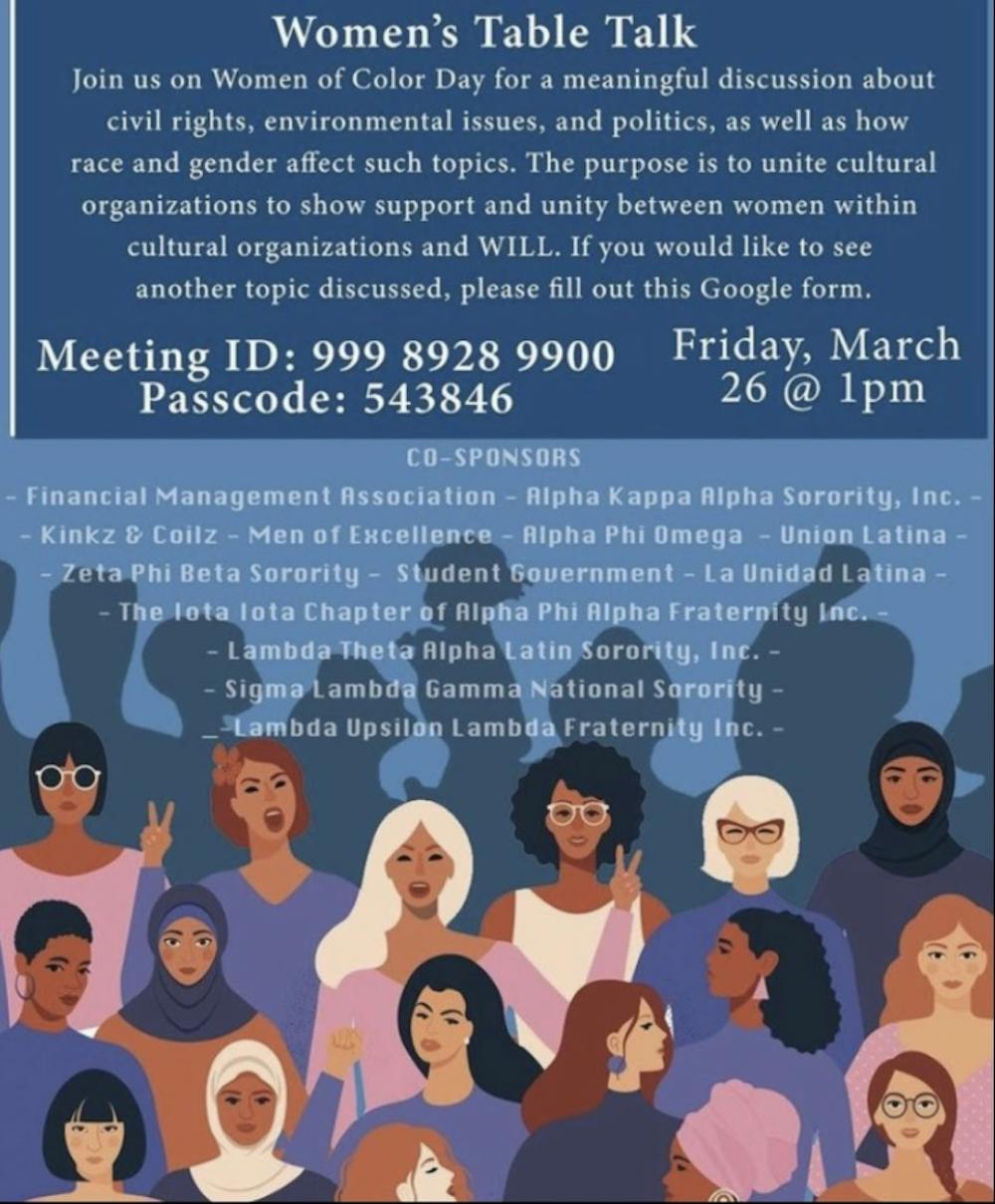By Jax Dieugenio
Staff Writer
Celebrating Women of Color Day on March 26, Women in Learning Leadership (WILL) hosted a virtual table talk with Union Latina, Zeta Phi Beta Sorority, La Unidad Latina, Alpha Kappa Alpha sorority and other organizations.
Reflecting on their different experiences, participants were able to discuss a wide variety of topics pertaining to race, gender and sexuality within individual, societal and political realms.
As explained in the event’s social media promotion, the purpose of the table talk was to “unite cultural organizations to show support and unity between women within cultural organizations and WILL.”
Discussing pressing topics including civil rights, environmental issues and politics, the discussion revolved mostly around the participants’ first-hand experiences with these issues.
One discussion revolved around ineffective and censored education of elementary and middle school students in regards to the civil rights movement.
“For many students in public middle schools and high schools the events of the civil rights movements have largely been sanitized,” explained WILL’s table talk moderator Maya Hendl, a sophomore criminology and women, gender and sexuality studies double major.
Offering her input on this ineffective education, co-moderator and freshman history major Dimon Urey examined the issue of black and white pictures in school textbooks.
“The pictures presented may appear in black and white, but they are actually in color. A lot of young children that are being taught about it assume that because they are in black and white that they were taken hundreds of years ago, but we had color back in the 50s and 60s,” she said.
Another discussion surrounded a censored version of the civil rights movement in the high school setting.
Offering her thoughts on the matter, student ambassador for AmIOK and sophomore psychology major Sophia Alexis said, “They are not telling it (the history) correctly. It may be okay to leave out some of the more violent details when talking to really young children but by the end of high school, students can handle understanding that there is and was violence in civil rights actions.”
When expressing the ways that history is often censored when presented to K-12 students, Urey said, “I think there is much more of an emphasis on the peacefulness and MLK, and not the fact that they were chased with dogs, were hosed and were beaten. I feel like that is important to highlight in this history.”
Other discussions in the meeting revolved around the issue of gender roles in society, the dated concept of school dress codes and how those rules largely impact women.

“You’re putting too much emphasis on what a student is wearing, especially a female student,” said junior biology major Mariana Ovalles. “When you go to college, you wear whatever you want and it doesn’t disrupt your education at all. Having a strict dress code in elementary schools, middle schools and high schools is really not needed.”
The final discussion point revolved around the timely issue of how the Covid-19 pandemic has disproportionately impacted communities of color.
“It’s frustrating. It’s 2021. We’re here,” Ovalles said. “We all need access to the vaccine and those within these communities who have not received it yet should be prioritized.”
“We need to make the information more accessible. For instance, how to make an appointment for the vaccine, the information is not being properly spread and it tells you something as a country that we keep trying to say we will do better while there are still disparities,” she said.







